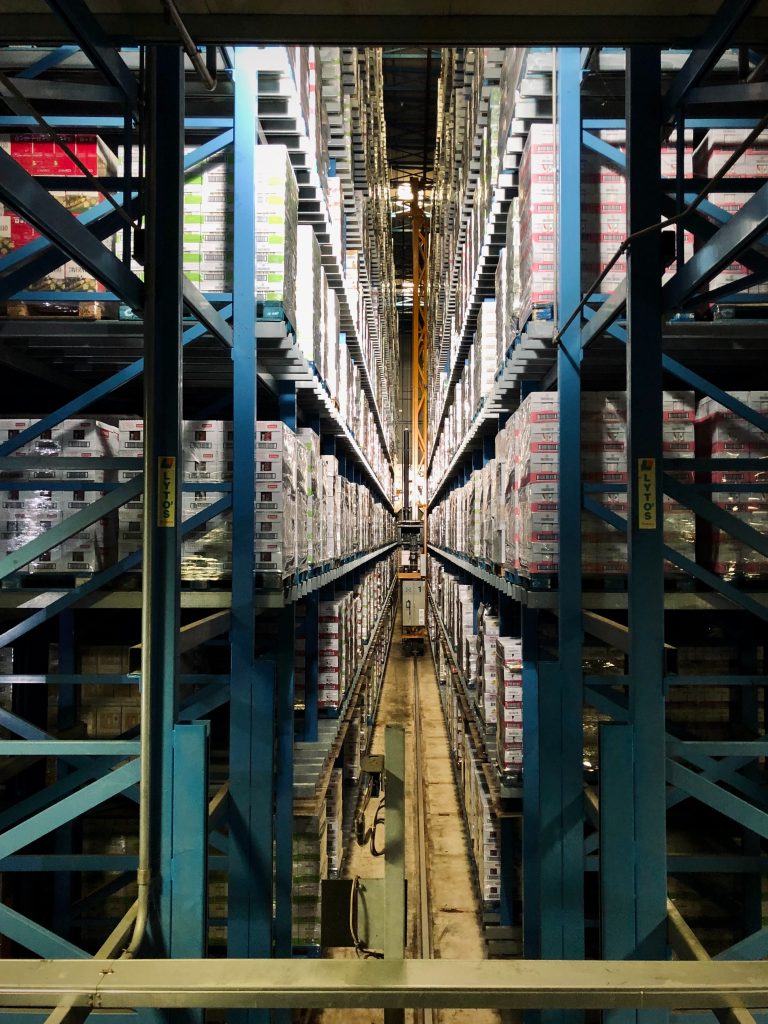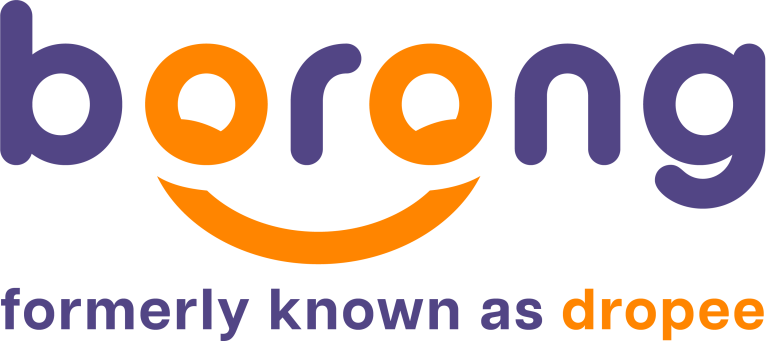Over the past decade, digital transformation trends have brought about groundbreaking changes in the B2B world. This was further accelerated when the Covid-19 pandemic hit. Businesses were forced to further dismantle their traditional practices and embrace newer models to stay afloat.
The effects of Covid-19 will continue to linger and seep into how B2B businesses conduct themselves. To compete in an increasingly demanding, B2B businesses must continue to embrace digitisation.
We look at some of the reasons why the industry must embrace digital transformation for 2021 and beyond.
Mobile Matters in Digital Transformation

In a study conducted by Google and The Boston Consulting Group, it was recorded that:
- Mobile accounts for over 40% of revenue for top B2B organisations
- 80% of B2B buyers are using mobile phones for work-related issues
- 60% of B2B buyers reported that mobile research influenced their recent purchasing decision
- Mobile use can fast-track time-to-purchase by 20%, thus increasing revenue and reducing costs
- 90% of B2B buyers are likely to repurchase from vendors that provide them with excellent mobile experience
These figures show us that a mobile-first mentality plays an important role in any B2B business’ digital strategy, especially if they intend to capture the attention of today’s B2B buyers. 73% of them are millennials.
Accustomed to multitasking and using more than several screens at a time, they’re no stranger to relying on mobile devices to stay on top of work.
Whether they’re researching your products after visiting your warehouse or placing orders, the new wave of B2B buyers are constantly connected to the internet.
The same study reports that B2B buyers are more likely to work out of their homes or when they’re in the midst of commuting. This signals that B2B businesses have substantial opportunities to reach them outside of conventional office hours.
For 2021, mobile integration is a crucial component for B2B businesses to continue engaging with their audience. A useful starting point is to optimise your website for mobile use.
Google’s Mobile-Friendly test is a useful tool for determining how your website performs in terms of mobile-responsiveness. The tool also provides you with specific website improvements.
The B2B Buyer Journey is Increasingly Self-Reliant

Today’s B2B customer is all about efficiency. They expect flexibility and speed during their information search. And when it comes to making repeat purchases, 85% of buyers feel no need for in-person support.
B2B customers are more likely to spend time researching a product or service on their own before reaching out for help. In fact, Gartner reveals that when B2B buyers are making a purchasing decision, only 17% of their time is spent interacting with potential suppliers. Therefore, businesses must focus on ensuring that their content is accessible to buyers, be it on their website or their social channels.
As B2B buyers become more comfortable with self-servicing, businesses must adapt their services to facilitate the buying journey. This might involve updating your FAQ page to optimising your website with knowledge portals, video content, chatbots and more. The goal is to provide buyers with the solutions they need at their fingertips.
This is a major indicator that in 2021, the B2B buyer demands an independent purchasing journey made possible by responsive, digitally-enabled self-service portals.
It’s also important to remember that the buyer’s journey is non-linear. They bounce between channels, compare notes on delivery time, re-visit different supplier information and then some.
What this tells us is that B2B buyers are more likely to value businesses that can simplify their buying processes. Businesses that encapsulate a convenient online experience involving information search, ordering and tracking processes are more likely to win over the B2B buyer of 2021.
Automation Continues to Grow in Importance

One of the driving forces behind automation adoption is that it performs all the arduous, repetitive tasks (with minimum error) and frees up time for business owners to focus on decision-making. In a 2018 survey by McKinsey, 57% of respondents from around the world declared their companies implement automation in at least one of their business units or functions.
Technology will continue to inform business decisions. Thus, competition to meet customer demands for speed and efficiency will rise, making it clear that automation must become a strategic priority that is systematically implemented.
From businesses that capitalise on large, recurring orders such as raw ingredient suppliers to F&B outlets, demand planning software is essential. Be it for analysing data on order history and accurately applying it to future forecasts, avoiding replenishment errors, delivery delays, incorrect quantity estimates and more.
69% of B2B marketers use automation for customer acquisition whilst 50% use it for customer retention. As businesses race to improve their customer channels, chatbot automation is a useful tool to have on board. As part of a greater B2B e-commerce strategy, creating a seamless omnichannel experience across multiple customer touchpoints is a core priority. A well-designed chatbot can deliver on this experience by connecting all the relevant channels while keeping a record of a customer’s activity and needs.
Customers are seven times more likely to become a lead if they receive a response within an hour of sending a query. Marketing automation can help businesses maximise their marketing strategy by automatically replying to potential customers when they send you a message. For example, if a customer has an enquiry about your delivery options during non-office hours, they can find out via your system’s chatbot.
Customers Have Higher Digital Expectations

Customers are savvier than ever. Let’s not forget that B2B buyers are also B2C consumers who in their personal lives, are accustomed to seamless e-commerce experiences. From the point of information search all the way down to the checkout button, eight out of 10 business buyers expect the B2B buying experience to reflect that of a B2C one.
What this means is that customers not only want self-service options and digitised solutions, but they also want them to be excellent. They want nothing short of an omnichannel experience where channel connectivity reigns supreme.
We narrowed down the key areas in which businesses should focus their attention on:
- A mobile-friendly B2B e-commerce commerce platform that supports self-service features, real-time pricing updates and data security.
- A solid content management system (CMS) that can monitor customer interaction and deliver relevant and personalised content.
- Customer support software that allows you to automate workflows and build a knowledge base based on customer data to help your support team address issues instantly.
- An online user portal that allows customers to check their order history, payments and get access to 24-hour customer support.
As crucial as it is, a digital transformation needs to be done right to produce positive results. B2B businesses must identify the right kinds of technology that will help them meet their buyers halfway at every point in their customer journey. We recommend asking the following questions before deciding on what avenues require a new update.
- Are we meeting a customer’s need for information?
- How well are we positioning ourselves for discovery?
- Are we addressing a customer’s pain points?
B2B businesses that can fulfill these needs will heighten their chances of attracting new customers and convert their existing customers into long-term loyalists.
Frictionless Checkout Processes for Success

“Frictionless checkout enables retailers to extend operating hours, optimise the store operations, and deploy stores closer to shoppers, whenever and wherever they need.” – Steve Guo, CEO & Co-Founder of AiFi
Underestimating the effects of a messy, inconvenient checkout process is an oversight for businesses.
As businesses race to fulfill the evolving demands of B2B buyers, they have come to truly understand the value of efficient payment solutions and how it impacts customer satisfaction.
According to Ris News’ Store Experience Study, businesses’ IT spending is on the incline every year and the majority of that investment is being directed towards creating frictionless checkout experiences.
Creating an online checkout experience that offers convenience, efficiency and flexibility is extremely important. Businesses must think about how to provide a frictionless checkout experience that fits into an omnichannel world, and streamline it across all buyer touchpoints be it mobile, desktop or in-store.
Progress Through Digital Transformation
Digitisation elevates business performance, be it through heightening one’s ability to connect with their customers or to simplify back-end processes.
While the pace of digital evolution may be intimidating, it’s a necessary step in today’s landscape. Start by identifying the areas in your organisational structure that have been slowing you down. This will help determine the best digitisation pathway to pursue. Of course, partnering with a service provider that can support you in your endeavour can be of massive help.
Dropee is an e-commerce provider that aims to support local B2B entities by providing them with the tools they need to optimise their business.
From marketplace solutions that can open up avenues for businesses to reach new customers, to digital services that help with inventory tracking and stock management, we make technology accessible to businesses. Contact our sales team for a free consultation today to learn more about how we can help you fast-track your growth.




